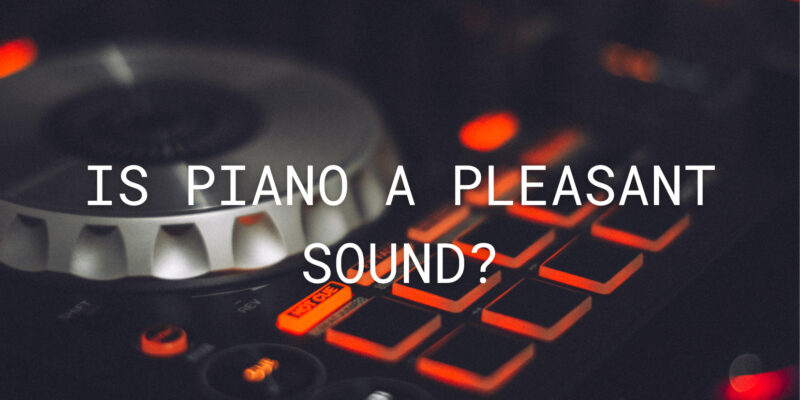The piano is often described as one of the most versatile and captivating musical instruments, known for its ability to produce a wide range of sounds and emotions. But is the piano a pleasant sound? The answer to this question depends on individual taste and personal experiences. Let’s delve into the various factors that contribute to the perceived pleasantness of piano sounds.
1. Rich Harmonics and Overtones: The piano’s appeal lies in its rich harmonics and overtones. When a piano key is struck, it sets multiple strings in motion, each producing harmonics and overtones that blend together to create a complex and layered sound. This complexity can be enchanting to those who appreciate the depth and intricacy of music.
2. Emotional Expressiveness: The piano is celebrated for its capacity to convey a wide range of emotions. From the melancholy melodies of a Chopin Nocturne to the thunderous passion of a Rachmaninoff concerto, the piano’s ability to evoke feelings is one of its most cherished qualities.
3. Versatility: The piano’s versatility allows it to adapt to various musical genres, from classical and jazz to pop and rock. Its ability to seamlessly integrate into diverse musical contexts makes it a pleasant and adaptable instrument.
4. Varied Timbre: The timbre of a piano can vary widely depending on factors such as the piano’s size, construction, and the pianist’s technique. From the bright and sparkling tones of a grand piano to the warm and mellow tones of an upright, there’s a wide spectrum of piano timbres to explore.
5. Personal Preferences: Musical preferences are highly subjective. What one person finds pleasant, another may not. Some individuals may prefer the lyrical melodies of a piano, while others may gravitate toward the raw energy of a guitar or the ethereal quality of a violin.
6. Cultural Influence: Cultural and regional backgrounds can also influence one’s perception of piano music. Different cultures have their own musical traditions and instruments, which can shape their preferences for certain sounds.
7. Association with Memories: The piano often plays a role in significant life events and personal memories. For some, the sound of a piano may evoke nostalgia and pleasant memories, contributing to its perceived pleasantness.
8. Skill and Interpretation: The skill and interpretation of the pianist can greatly affect the listener’s experience. A skilled pianist can bring out the best in a piece, making it more enjoyable for the audience.
In conclusion, whether the piano is considered a pleasant sound is a matter of personal taste and subjective perception. Its harmonics, emotional expressiveness, versatility, and ability to convey a wide range of feelings make it a cherished and enchanting instrument for many. However, individual preferences, cultural influences, and personal associations all play a role in shaping one’s perception of the piano’s sound. Ultimately, the beauty of music lies in its diversity, offering a multitude of sounds and styles to suit a wide range of tastes and sensibilities.


